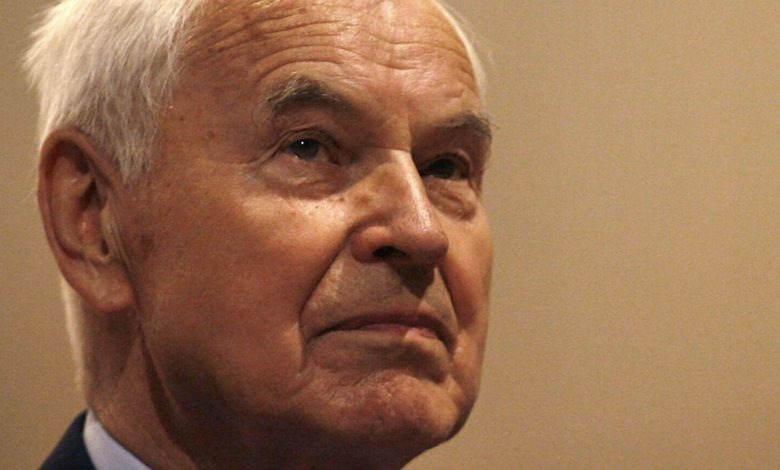Hans Modrow, who as the last Communist prime minister of East Germany oversaw democratic reforms that opened the way to German reunification, has died at age 95, Germany’s hard-left Die Linke party said.
“Last night Hans Modrow left us at the age of 95. With this, our party loses an important personality,” the party, successor to the East German Communist Party, said in a statement on Saturday.
Modrow had said he would help turn East Germany into a democracy when he became prime minister of a Communist-led transition government on November 13, 1989, four days after the opening of the Berlin Wall that had divided East and West Berlin for 28 years.
The previous communist leadership had been forced out as protesters across East Germany demanded democracy and freedom, echoing calls for change across Soviet-dominated eastern Europe following Mikhail Gorbachev’s rise to power in the Soviet Union.
Modrow announced the first and only free election in what was known as the German Democratic Republic (GDR) in March 1990, though it resulted in him ceasing to be prime minister.
Although he carried out reforms, he was accused by opponents of trying to delay political change and reunification, which took place in October 1990. He was also criticised for trying to rebrand rather than abolish the Stasi security police.
Modrow was found guilty in 1993 of electoral fraud in a municipal election in May 1989 but was not jailed and said the charges were politically motivated.
He went on to serve in the German parliament from 1990 until 1994, representing a forerunner to Die Linke called the PDS, and was a member of the European Parliament from 1999 until 2004.
Modrow saw himself as a reformer who wanted to change the Communist party from the inside and make it more democratic. In 1999, he told Reuters that he did not want the old GDR back but said its achievements should be recognised.
“In foreign relations, under the GDR, the Cold War did not turn into a hot war,” he said. “And after the violence of World War II, we succeeded in making friends with Poland.”
Source: al-jazeera

